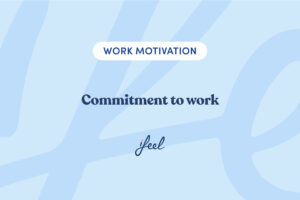There are moments during our lives where we might consider making a change. And when we talk about a change, we don’t mean a new haircut – we mean a radical change.
In fact, there are circumstances that may cause us to rethink our whole situation, especially when we are not satisfied with our life journey. Situations such as suffering, overcoming an accident, fighting an illness, or losing someone close to us are common examples, but something concrete and specific doesn’t always need to happen to inspire change.
Many people question the direction of their life at some moment based on their personal satisfaction: maybe a stagnant dream, an incomplete personal project, problems with a personal relationship, work ventures…
When we are faced with an existential crisis or a turning point, we often experience uneasiness, fear, discomfort and anxiety. But turning a crisis around is completely possible.

In Japanese, the word crisis also means opportunity. Obviously, going through these periods isn’t always pleasant, but a crisis can be just the push you need to move forward and progress.
But, we must remember: making important changes in our lives often involves making decisions and taking on more responsibility. This implies that we must accept the possible consequences, both positive and negative. And this, as we all know, can be frightening.
How do we know when we are faced with an important decision?
First, we must learn how to differentiate between decisions that will greatly impact our lives and those that will not.
Luckily, there is a technique that helps you to recognize which decisions are relevant. It takes the weight off of your not-so-important decisions, and reduces your anxiety about the more meaningful decisions. It helps you reflect and focus on what you really want for yourself.
This is “the formula 10-10-10”, promoted by writer and journalist Suzy Welch. In order to do this activity, the only materials you’ll need are pen and paper. Once you’re in a relaxed environment with a calm mindset, try to answer some of the following questions as honestly as you can (remember that no one will see this paper, so write down how you truly feel).
She explains: “When I find myself in a situation where there’s no solution that will satisfy everyone, I ask myself these three questions: what will be the consequences of my decision in 10 minutes? In 10 months? And in 10 years?”
For example, imagine that you’re considering quitting your job because you want to start your own business:
How would you feel about this decision 10 minutes later?
What will be the positive and negative consequences?
What about in 10 months?
And in 10 years?
Perhaps your answer is, for example, that you would feel fear and release in the first 10 minutes, stress during the next 10 months, and then pride 10 years later for carrying out your dream.
Decisions: Fears and Difficulties
Making decisions isn’t easy. Nobody said it was.
It’s easy to ask yourself “what if…? What if…?” But like everything in life, nothing has just one point of view and we can put ourselves in different scenarios:
“What if…you don’t try it?”
“What if…you know you’re going to die in a year, what would you do?”
On the other hand, making decisions often involves learning how to quit, which involves giving up certain things in favor of others. The question is, what are your priorities in this moment?
When you’re stuck in a bad situation, prioritize your decisions by figuring out what makes you feel good and at peace with yourself in order to act accordingly. The coherence between your head and your heart should govern your steps.
Choose. But above all, always choose yourself.
Choosing oneself doesn’t mean you’re being selfish. Sometimes we choose to please other people and in the long run that can be harmful (for you and for others). Besides, you’ll never be able to please everyone. So, choose what is most valuable to you and face what comes with it.
Sometimes you may choose to satisfy another person because it makes you feel good. Are you aware of how and why? Are you aware of the consequences that it brings and do you agree with it? Understanding this is important, because then you won’t disappoint yourself or the other person and you’ll feel comfortable with the decision you’re making.
Factors to take into account when we make a decision
Sometimes we should imagine our future selves talking to us. Find a quiet place and imagine it: what do you think you would say? What advice do you think you’d give to yourself?
And more importantly, how would you like your life to look in the future?

We tend to focus only on the result so we can label it as positive or negative, but what about the process? It matters too!
We all like a good result in the end, but if the results are not in our favor, the learning process should still be recognized and appreciated.
All the time and effort we put in has value. At the end of the day we all do things the best we can.
Don’t forget, before making important decisions…
- Reflect, make meditated decisions
- Analyze the positive and negative consequences
- Connect with what YOU want, not with what others want for you
- Clarify your objectives
- Draw up a plan
- Decide!













